Projects
A League based on International Law?
The Role of the Legal Section of the League of Nations
Associate Professor Morten Rasmussen, University of Copenhagen
 This project will be the very first historical study on the basis of archival documentation of
This project will be the very first historical study on the basis of archival documentation of
the legal section of the LoN Secretariat. Two questions will be addressed: Firstly, it will establish a general overview of the activities of the legal section, which was one of the earliest examples of a legal service of an international organisation. This includes the key role as legal advisor to the League of Nations Council, Secretariat and Commissions, and its role as reference point for both the Permanent Court of International Justice and the programmes for registering and codifying international law. Secondly, it will explore to what extent the legal section developed a vision and a strategy on how to strengthen the competences and legal framework of the League of Nations, and if this was the case, to what extent it influenced the development of international law. Legal services of international organisations have played important roles in the development of international law after 1945, by studying one of the earliest examples of legal service we explore an important historical predecessor for later successes.
Setting Labour Standards Through International Law. The Role of Law in the International Labour Organisation
Professor Daniel Maul, University of Oslo
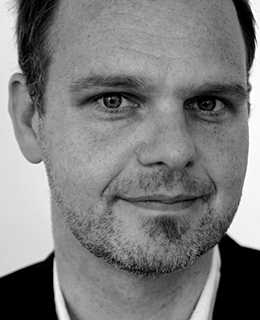 From the very beginning in 1919 the core mission of the International Labour Organisation
From the very beginning in 1919 the core mission of the International Labour Organisation
(ILO) was to develop international labour law to diminish the social cost and potentially
disruptive effects of international economic competition. As the International Labor Code,
the collection of international labor standards, grew in size and strength, so did the role of
lawyers within the ILO’s institutional architecture. This project explores two central questions based on the ILO archives: Firstly, it analyses the role of lawyers both inside the various departments of the ILO and in the Committee of Experts on the Application of Conventions and Recommendations that monitored member state compliance. The hypothesis is that lawyers were central to the development of a specific organizational ideology and sense of mission. Secondly, the application of the legal approach will be further analysed by studying the ILO’s approach to the issue of forced labor used by colonial powers in their respective mandates. Although it did not have the competence to address these abuses, the ILO managed by means of legal discourse to gradually shape the ways colonial labor was perceived pointing towards the Philadelphia Declaration (1944) and a set of conventions that run under the heading Social Policy in Non-Metropolitan Territories (1944-1948).
Constructing International Law. The Role of Lawyers, Professors and Transnational Networks
Assistant professor Karin van Leeuwen, University of Maastricht
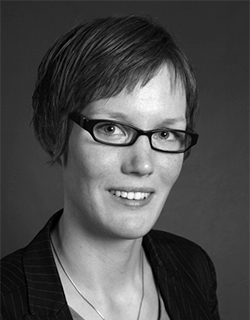 While the intellectual output of international law scholars has been much studied, their social environment and networks have not. This project will explore the dynamic development of international law as an academic and professional field in the interwar period. Before 1918, the community of international law professors and professional lawyers was fairly restricted, being based on a transnational network around the Institute de Droit International in Belgium. However, the League of Nations system offered new opportunities for providers of legal expertise in several respects. This project will as a starting point analyse how the transnational network of international lawyers expanded and developed in response to these new opportunities. Secondly, the rise of new educational institutions such as The Hague Academy of International Law, the Geneva Institute for Advanced International Studies and the Division of international law the Carnegie Endowment for International Peace and their impact on the academic field of international law will be analysed. Finally, the project will explore the new demand for legal expertise created by the many new types of international treaties (the petition system of the minority treaties created for example a market for professional legal advice) and bilateral peace treaties which often included mediation through mixed arbitration tribunals.
While the intellectual output of international law scholars has been much studied, their social environment and networks have not. This project will explore the dynamic development of international law as an academic and professional field in the interwar period. Before 1918, the community of international law professors and professional lawyers was fairly restricted, being based on a transnational network around the Institute de Droit International in Belgium. However, the League of Nations system offered new opportunities for providers of legal expertise in several respects. This project will as a starting point analyse how the transnational network of international lawyers expanded and developed in response to these new opportunities. Secondly, the rise of new educational institutions such as The Hague Academy of International Law, the Geneva Institute for Advanced International Studies and the Division of international law the Carnegie Endowment for International Peace and their impact on the academic field of international law will be analysed. Finally, the project will explore the new demand for legal expertise created by the many new types of international treaties (the petition system of the minority treaties created for example a market for professional legal advice) and bilateral peace treaties which often included mediation through mixed arbitration tribunals.
La Paix par le droit?
France and the Development of International Law
Associate Professor Jean-Michel Guieu, Université de Paris 1, Panthéon-Sorbonne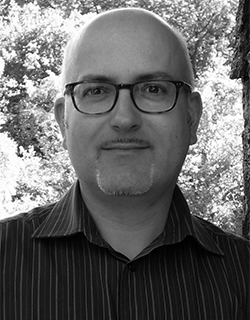 In France the political debate on the significance of the League of Nations and international law divided the political left and right. While the centre-left supported the move towards a replacement of traditional diplomacy with international law, the political right mistrusted the League of Nations system and preferred the strict implementation of the Versailles treaty and a reliance on force. As French foreign policy was caught between these two extremes, the foreign ministry officials were not particular keen on the legal vision, given the lack of flexibility that law offered compared to traditional diplomacy. So while occupying the Ruhr (1923-1925) in order to enforce the peace terms, for example, French governments pursued the outlawing of wars with the Geneva Protocol (1924) and the General Pact for the Pacific Settlement of International Disputes and the Kellogg-Briand Pact (1928). This project will focus on two aspects. Firstly, the role of the Foreign Ministry and its legal service in the formulation of French policies on international law will be analysed. To what extent did the ministry secure continuity in French politics on international law that went beyond party politics? Secondly, what role did the strong community of French international lawyers play in the making of French foreign policy?
In France the political debate on the significance of the League of Nations and international law divided the political left and right. While the centre-left supported the move towards a replacement of traditional diplomacy with international law, the political right mistrusted the League of Nations system and preferred the strict implementation of the Versailles treaty and a reliance on force. As French foreign policy was caught between these two extremes, the foreign ministry officials were not particular keen on the legal vision, given the lack of flexibility that law offered compared to traditional diplomacy. So while occupying the Ruhr (1923-1925) in order to enforce the peace terms, for example, French governments pursued the outlawing of wars with the Geneva Protocol (1924) and the General Pact for the Pacific Settlement of International Disputes and the Kellogg-Briand Pact (1928). This project will focus on two aspects. Firstly, the role of the Foreign Ministry and its legal service in the formulation of French policies on international law will be analysed. To what extent did the ministry secure continuity in French politics on international law that went beyond party politics? Secondly, what role did the strong community of French international lawyers play in the making of French foreign policy?
Cui Bono? Germany and the Development of International Law
PhD student Thomas Storgaard, University of Copenhagen The defeat in the First World War and the coming of the new Weimar Republic augured in a new approach to international law in German foreign policy. However, the great disappointment with the Versailler Diktat not only made it difficult for the democratic forces of the new republic to ensure a lasting European peace, it also led to the polarization of the German international law community. As German policies vis-à-vis the Western powers and the League of Nations changed from 1923 onwards under foreign minister Gustav Stresemann, the role of international law in German foreign policy was also transformed, as manifested itself in the German use of the minority treaties for political purposes or the general support for international law with the Locarno Treaties (1925) and the Kellogg-Briand Pact (1928). From 1933 German support to international law in a traditional sense gradually evaporated even if some continuity was maintained, but an ongoing battle over how to perceive the new Nazi state in terms of international law began. This project will be the first to systematically explore the role of international law in German foreign policy based on the archives of the German Foreign Ministry. In addition, the project will trace how the international law community in Germany interacted both with national authorities, but also in the international arena vis-à-vis League of Nations institutions as well as in transnational legal networks. The aim is to provide an overall understanding of the role of Germany in the development of international law in the interwar period.
The defeat in the First World War and the coming of the new Weimar Republic augured in a new approach to international law in German foreign policy. However, the great disappointment with the Versailler Diktat not only made it difficult for the democratic forces of the new republic to ensure a lasting European peace, it also led to the polarization of the German international law community. As German policies vis-à-vis the Western powers and the League of Nations changed from 1923 onwards under foreign minister Gustav Stresemann, the role of international law in German foreign policy was also transformed, as manifested itself in the German use of the minority treaties for political purposes or the general support for international law with the Locarno Treaties (1925) and the Kellogg-Briand Pact (1928). From 1933 German support to international law in a traditional sense gradually evaporated even if some continuity was maintained, but an ongoing battle over how to perceive the new Nazi state in terms of international law began. This project will be the first to systematically explore the role of international law in German foreign policy based on the archives of the German Foreign Ministry. In addition, the project will trace how the international law community in Germany interacted both with national authorities, but also in the international arena vis-à-vis League of Nations institutions as well as in transnational legal networks. The aim is to provide an overall understanding of the role of Germany in the development of international law in the interwar period.
Manley O. Hudson:
An American Lawyer at the League of Nations
Senior researcher Rasmus Sinding Søndergaard, DIIS
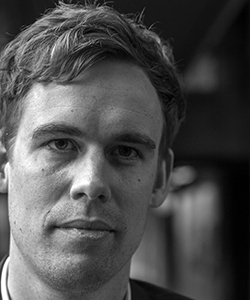 The United States occupies a peculiar position as both vanguard and outsider in the history of the League of Nations (LoN) after President Woodrow Wilson’s efforts to establish the League were slated by the Senate’s rejection of US membership. Although the United States formally resided on the sidelines of the LoN system, individual Americans became deeply involved in the formation of international law at the LoN. This project examines the work of the American lawyer and academic Manley O. Hudson, who occupied important positions in the LoN system and became an active proponent of the LoN in the United States. Having been part of the American commission to the Paris Peace Conference in 1918, Hudson joined the LoN Secretariat in 1919 and later served as a judge of the Permanent Court of International Justice (1936-1946). Based on Hudson’s private archives, the project pursues two principal inquiries. Firstly, it examines the work of Hudson inside the LoN system, highlighting his contributions to the formation of international law. Secondly, it investigates Hudson’s advocacy for the LoN in the United States, including the formation of organizations lobbying for US membership. By studying the work of Hudson, the project provides the first historical account of an important but little known figure in the LoN system. Moreover, it furthers our understanding of the complicated relationship between the LoN and the United States through the life and work of an individual that represented both.
The United States occupies a peculiar position as both vanguard and outsider in the history of the League of Nations (LoN) after President Woodrow Wilson’s efforts to establish the League were slated by the Senate’s rejection of US membership. Although the United States formally resided on the sidelines of the LoN system, individual Americans became deeply involved in the formation of international law at the LoN. This project examines the work of the American lawyer and academic Manley O. Hudson, who occupied important positions in the LoN system and became an active proponent of the LoN in the United States. Having been part of the American commission to the Paris Peace Conference in 1918, Hudson joined the LoN Secretariat in 1919 and later served as a judge of the Permanent Court of International Justice (1936-1946). Based on Hudson’s private archives, the project pursues two principal inquiries. Firstly, it examines the work of Hudson inside the LoN system, highlighting his contributions to the formation of international law. Secondly, it investigates Hudson’s advocacy for the LoN in the United States, including the formation of organizations lobbying for US membership. By studying the work of Hudson, the project provides the first historical account of an important but little known figure in the LoN system. Moreover, it furthers our understanding of the complicated relationship between the LoN and the United States through the life and work of an individual that represented both.
Andrei Mamolea
Assistant professor, Boston University
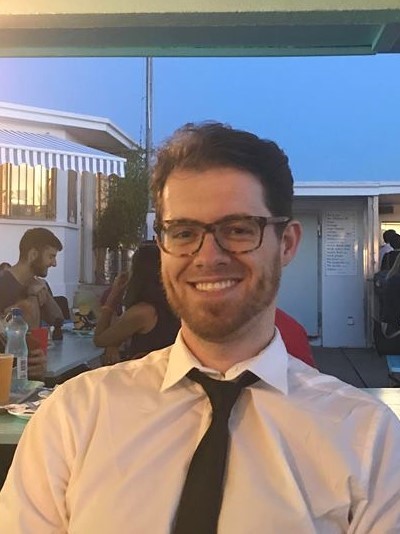 Andrei Mamolea is a visiting fellow at the Max Planck Institute for European Legal History and an SSHRC post-doctoral fellow at McGill University Faculty of Law. His research challenges the widespread notion that the United States was the driving force behind the development of international law during the late nineteenth and early twentieth centuries and then shifts attention to the neglected but important role of small states, especially in Latin America and East-Central Europe. Within the “Laying the Foundations” project, he examines the influence of jurists, diplomats, and League of Nations functionaries from these regions, as well as the sovereigntist tradition among legal circles in the United States.
Andrei Mamolea is a visiting fellow at the Max Planck Institute for European Legal History and an SSHRC post-doctoral fellow at McGill University Faculty of Law. His research challenges the widespread notion that the United States was the driving force behind the development of international law during the late nineteenth and early twentieth centuries and then shifts attention to the neglected but important role of small states, especially in Latin America and East-Central Europe. Within the “Laying the Foundations” project, he examines the influence of jurists, diplomats, and League of Nations functionaries from these regions, as well as the sovereigntist tradition among legal circles in the United States.
Megan Donaldson
Lecturer in Public International Law at University College London.
 She is currently preparing a monograph, from her doctoral dissertation, tracing ideas and practices of secrecy and publicity in the international legal order from the nineteenth century to the present. This research focuses on the interwar years as a foundational period in which an expanding franchise, and the experience of industrialized warfare, gave impetus to new demands for publicity of diplomacy – but triggered in turn the modernization, reformulation and legitimation of a liberal secrecy regarding foreign relations which subsists today. The book addresses dynamics of secrecy and publicity in particular in diplomatic relations; the workings of League bodies; the management of treaties; disarmament and arms control; and intelligence. Across these areas she traces how the regulation of secrecy moves in and out of juridical frames, found sometimes in political and bureaucratic custom, or diplomatic etiquette, but crystallized also in the public law of states. The work draws on archives of the League of Nations Secretariat, and of foreign ministries in Britain, France and the United States. Other work on the twentieth-century international legal order includes 'The Survival of the Secret Treaty: Publicity, Secrecy and Legality in the International Order' (2017) 111 American Journal of International Law 575; 'The League of Nations, Ethiopia, and the Making of States' (forthcoming (2019) 11 Humanity); and 'Ventriloquism in Geneva: The League of Nations as International Institution' (forthcoming in Brett & Koskenniemi (eds), History, Politics, Law: Thinking through the International).
She is currently preparing a monograph, from her doctoral dissertation, tracing ideas and practices of secrecy and publicity in the international legal order from the nineteenth century to the present. This research focuses on the interwar years as a foundational period in which an expanding franchise, and the experience of industrialized warfare, gave impetus to new demands for publicity of diplomacy – but triggered in turn the modernization, reformulation and legitimation of a liberal secrecy regarding foreign relations which subsists today. The book addresses dynamics of secrecy and publicity in particular in diplomatic relations; the workings of League bodies; the management of treaties; disarmament and arms control; and intelligence. Across these areas she traces how the regulation of secrecy moves in and out of juridical frames, found sometimes in political and bureaucratic custom, or diplomatic etiquette, but crystallized also in the public law of states. The work draws on archives of the League of Nations Secretariat, and of foreign ministries in Britain, France and the United States. Other work on the twentieth-century international legal order includes 'The Survival of the Secret Treaty: Publicity, Secrecy and Legality in the International Order' (2017) 111 American Journal of International Law 575; 'The League of Nations, Ethiopia, and the Making of States' (forthcoming (2019) 11 Humanity); and 'Ventriloquism in Geneva: The League of Nations as International Institution' (forthcoming in Brett & Koskenniemi (eds), History, Politics, Law: Thinking through the International).
Visualizing the League of Nations Secretariat – a Digital Research Tool
Haakon A. Ikonomou, Associate Professor, Saxo Institute
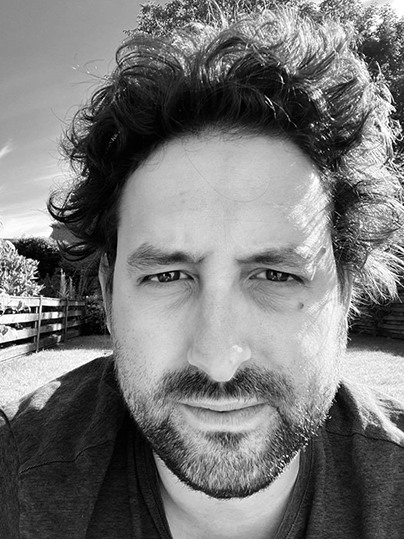 Disarmament and International Law in the League of Nations system: Disarmament was arguably the most important subject of interwar international politics within the framework of the League of Nations. My project aims to shed new light on this highly contested endeavour and the deeply underappreciated role of international civil servants in our understanding of the formation and practice international law. My specific contribution is twofold: First, to investigate how the Disarmament Section of the League Secretariat facilitated the most significant attempt at general disarmament in the interwar period, the Draft Disarmament Convention before the World Disarmament Conference (1932-34), through its work with the Preparatory Commission for the Disarmament Conference (1925-1930). Second, I will conduct a more general study of how the League of Nations system (i.e. The League of Nations, the Permanent Court of International Justice and the International Labour Organisation) shaped practices of international law within the realm of disarmament, by looking at the League itself as an institution that both produced and harnessed the potential of international law as a tool for global disarmament governance.
Disarmament and International Law in the League of Nations system: Disarmament was arguably the most important subject of interwar international politics within the framework of the League of Nations. My project aims to shed new light on this highly contested endeavour and the deeply underappreciated role of international civil servants in our understanding of the formation and practice international law. My specific contribution is twofold: First, to investigate how the Disarmament Section of the League Secretariat facilitated the most significant attempt at general disarmament in the interwar period, the Draft Disarmament Convention before the World Disarmament Conference (1932-34), through its work with the Preparatory Commission for the Disarmament Conference (1925-1930). Second, I will conduct a more general study of how the League of Nations system (i.e. The League of Nations, the Permanent Court of International Justice and the International Labour Organisation) shaped practices of international law within the realm of disarmament, by looking at the League itself as an institution that both produced and harnessed the potential of international law as a tool for global disarmament governance.
The League of Nations and the promoting and shaping of international legal instruments regulating the conduct of states (1920 – 1939)
Vera Fritz – Marie Curie Fellow, University of Copenhagen
 This postdoc project will produce an archive-based historical account of how the first universal organization, the League of Nations, forged various diplomatic strategies to convince member states to strengthen and develop international law through the codification of international customary law. It will also study how the League defined the concrete shape that legal agreements would take and developed drafting techniques which still prevail today. Although the history of how the legal shape of international agreements and decisions developed is strictly speaking legal history, it is at the heart of international organizations history because it concerns the capacity of international bodies to act. In addition, law was very much at the center of the League of Nations as a political and ideological project, in which a handful of diplomats played leading roles. This research project will combine a macro-multi archive approach relying on documents from the League and key member states with micro-level biographical research on individual actors. The combination of these different sources and angles of analysis will allow for an important contribution to our understanding of how global governance took a distinctively legal form during the Twentieth Century.
This postdoc project will produce an archive-based historical account of how the first universal organization, the League of Nations, forged various diplomatic strategies to convince member states to strengthen and develop international law through the codification of international customary law. It will also study how the League defined the concrete shape that legal agreements would take and developed drafting techniques which still prevail today. Although the history of how the legal shape of international agreements and decisions developed is strictly speaking legal history, it is at the heart of international organizations history because it concerns the capacity of international bodies to act. In addition, law was very much at the center of the League of Nations as a political and ideological project, in which a handful of diplomats played leading roles. This research project will combine a macro-multi archive approach relying on documents from the League and key member states with micro-level biographical research on individual actors. The combination of these different sources and angles of analysis will allow for an important contribution to our understanding of how global governance took a distinctively legal form during the Twentieth Century.
Geneva versus The Hague: The League of Nations and the Permanent Court of International Justice
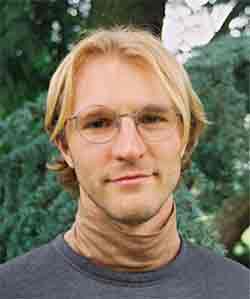 Aden Knaap - PhD student at Harvard University
Aden Knaap - PhD student at Harvard University
Aden Knaap is currently working on a book project, provisionally titled Judging the World: International Courts and the Origins of Global Governance. This project argues that international courts were some of the earliest and most powerful world organizations. It explores a series of courts, proposed and actual, and around the globe, from the late nineteenth century to the 1970s. Within the "Laying the Foundations" project, he is exploring the relationship between the League of Nations in Geneva and a contemporaneous international court in The Hague, the Permanent Court of International Justice. Most scholars have assumed that this Hague Court was part of the League of Nations. His work instead suggests that the Court was independent for most of its existence, and that many of its judges actively sought to distance the Court from the League. This work is tentatively titled "Geneva versus The Hague: The League of Nations and the Permanent Court of International Justice."
